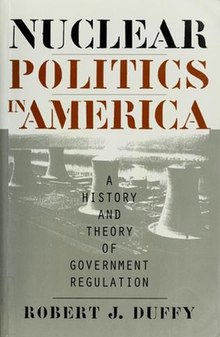
Political ecology is the study of the relationships between political, economic and social factors with environmental issues and changes. Political ecology differs from apolitical ecological studies by politicizing environmental issues and phenomena.
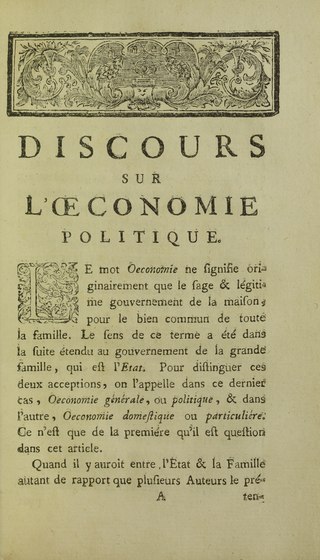
Political economy is a branch of political science and economics studying economic systems and their governance by political systems. Widely studied phenomena within the discipline are systems such as labour markets and financial markets, as well as phenomena such as growth, distribution, inequality, and trade, and how these are shaped by institutions, laws, and government policy. Originating in the 16th century, it is the precursor to the modern discipline of economics. Political economy in its modern form is considered an interdisciplinary field, drawing on theory from both political science and modern economics.

The United States Atomic Energy Commission (AEC) was an agency of the United States government established after World War II by the U.S. Congress to foster and control the peacetime development of atomic science and technology. President Harry S. Truman signed the McMahon/Atomic Energy Act on August 1, 1946, transferring the control of atomic energy from military to civilian hands, effective on January 1, 1947. This shift gave the members of the AEC complete control of the plants, laboratories, equipment, and personnel assembled during the war to produce the atomic bomb.

Authority is commonly understood as the legitimate power of a person or group over other people. In a civil state, authority is practiced by the legislative, executive, and judicial branches of government. The term authority has many nuances and distinctions within various academic fields ranging from sociology to political science.
Race to the bottom is a socio-economic phrase to describe either government deregulation of the business environment or reduction in corporate tax rates, in order to attract or retain economic activity in their jurisdictions. While this phenomenon can happen between countries as a result of globalization and free trade, it also can occur within individual countries between their sub-jurisdictions. It may occur when competition increases between geographic areas over a particular sector of trade and production. The effect and intent of these actions is to lower labor rates, cost of business, or other factors over which governments can exert control.

Joseph Samuel Nye Jr. is an American political scientist. He and Robert Keohane co-founded the international relations theory of neoliberalism, which they developed in their 1977 book Power and Interdependence. Together with Keohane, he developed the concepts of asymmetrical and complex interdependence. They also explored transnational relations and world politics in an edited volume in the 1970s. More recently, he pioneered the theory of soft power. His notion of "smart power" became popular with the use of this phrase by members of the Clinton Administration and the Obama Administration.
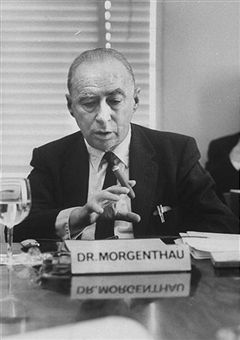
Hans Joachim Morgenthau was a German-American jurist and political scientist who was one of the major 20th-century figures in the study of international relations. Morgenthau's works belong to the tradition of realism in international relations theory; he is usually considered among the most influential realists of the post-World War II period. Morgenthau made landmark contributions to international relations theory and the study of international law. His Politics Among Nations, first published in 1948, went through five editions during his lifetime and was widely adopted as a textbook in U.S. universities. While Morgenthau emphasized the centrality of power and "the national interest," the subtitle of Politics Among Nations—"the struggle for power and peace"—indicates his concern not only with the struggle for power but also with the ways in which it is limited by ethical and legal norms.

Robert Alan Dahl was an American political theorist and Sterling Professor of Political Science at Yale University.

George Joseph Stigler was an American economist. He was the 1982 laureate in Nobel Memorial Prize in Economic Sciences and is considered a key leader of the Chicago school of economics.

Robert Jervis was an American political scientist who was the Adlai E. Stevenson Professor of International Politics in the Department of Political Science at Columbia University. Jervis was co-editor of the Cornell Studies in Security Affairs, a series published by Cornell University Press.
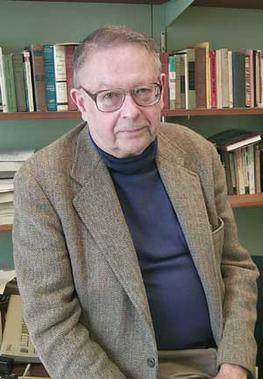
Kenneth Neal Waltz was an American political scientist who was a member of the faculty at both the University of California, Berkeley and Columbia University and one of the most prominent scholars in the field of international relations. He was a veteran of both World War II and the Korean War.
The regulation of science refers to use of law, or other ruling, by academic or governmental bodies to allow or restrict science from performing certain practices, or researching certain scientific areas.
Government failure, in the context of public economics, is an economic inefficiency caused by a government intervention, if the inefficiency would not exist in a true free market. The costs of the government intervention are greater than the benefits provided. It can be viewed in contrast to a market failure, which is an economic inefficiency that results from the free market itself, and can potentially be corrected through government regulation. However, Government failure often arises from an attempt to solve market failure. The idea of government failure is associated with the policy argument that, even if particular markets may not meet the standard conditions of perfect competition required to ensure social optimality, government intervention may make matters worse rather than better.
In politics, regulatory capture is a form of corruption of authority that occurs when a political entity, policymaker, or regulator is co-opted to serve the commercial, ideological, or political interests of a minor constituency, such as a particular geographic area, industry, profession, or ideological group.
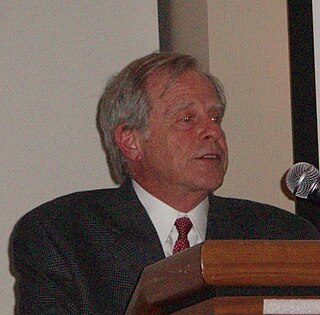
Theodore J. "Ted" Lowi was an American political scientist. He was the John L. Senior Professor of American Institutions teaching in the Government Department at Cornell University. His area of research was the American government and public policy. He was a member of the core faculty of the Cornell Institute for Public Affairs.
Robert Gilpin was an American political scientist. He was Professor of Politics and International Affairs at the Woodrow Wilson School of Public and International Affairs at Princeton University where he held the Eisenhower professorship.
Dr. John T. Scholz is the Francis Eppes Distinguished Professor of Political Science and a Courtesy Professor of Law at Florida State University. As the first political scientist to formulate the "regulation game," which was later extended in influential work on responsive regulation by John Braithwaite and Ian Ayres. Scholz is widely regarded as one of the leading political scientists addressing regulatory enforcement.
Licensed to Kill? The Nuclear Regulatory Commission and the Shoreham Power Plant, a 1998 book by Joan Aron, presents the first detailed case study of how an activist public and elected officials of New York state opposed the Shoreham Nuclear Power Plant on Long Island. The book explains that nuclear power faltered when "public concerns about health, safety, and the environment superseded other interests about national security or energy supplies".

Critical Masses: Opposition to Nuclear Power in California, 1958–1978 is the first detailed history of the anti-nuclear movement in the United States, written by Thomas Wellock. It is also the first state-level research on the subject with a focus on California. Reviewer Paula Garb has said:
The book is rich with vivid verbal pictures and the passionate voices of participants on all sides of the controversy around the peaceful atom. It is based on interviews, documents from state and federal archives, and activist papers. Wellock brings to this project the expertise of a former engineer for civilian and navy nuclear reactors, a thorough archivist, and a sensitive interviewer.

The United States Government Accountability Office reported more than 150 incidents from 2001 to 2006 of nuclear plants not performing within acceptable safety guidelines. According to a 2010 survey of energy accidents, there have been at least 56 accidents at nuclear reactors in the United States. The most serious of these was the Three Mile Island accident in 1979. Davis-Besse Nuclear Power Plant has been the source of two of the top five most dangerous nuclear incidents in the United States since 1979. Relatively few accidents have involved fatalities.
